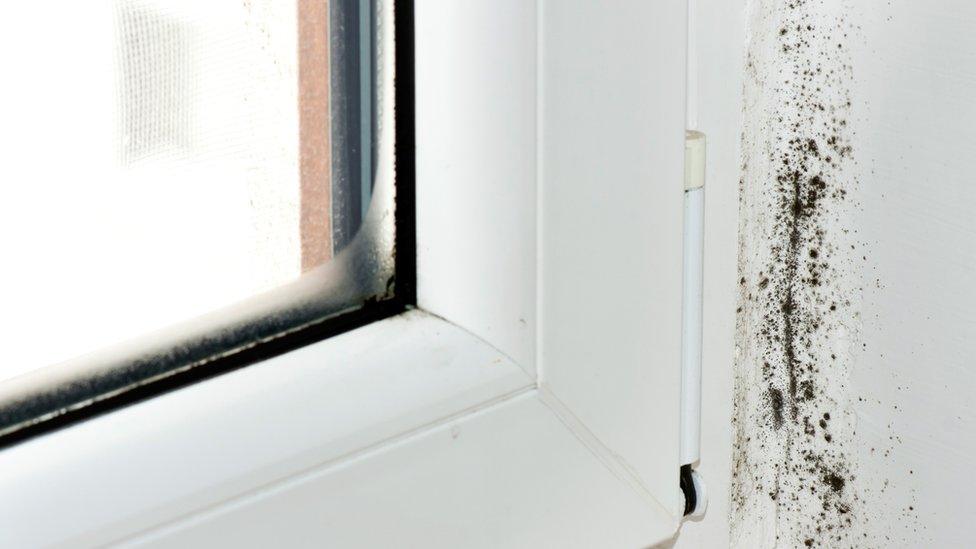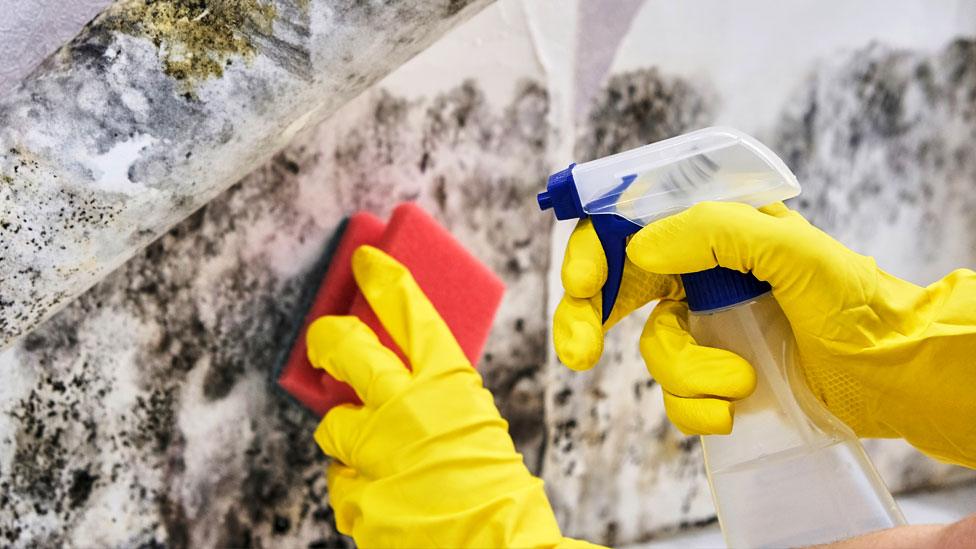Action promised by BCP Council over damp and mould in homes
- Published

Council workers visiting homes will be trained in spotting signs of mould
High risk cases of damp and mould in rented homes will be fixed through a new campaign, a council has promised.
Bournemouth, Christchurch and Poole (BCP) council said it would provide advice and support to affected tenants.
Housing portfolio holder Karen Rampton said people should not "slip through the net".
The issue of exposure to mould in homes was raised after a toddler died from a respiratory condition in Rochdale in 2020.
Ms Rampton said a new working group would be set up to decide how best to support council tenants and to offer advice and support for those in private rented accommodation.
She said that the council was also working with Sovereign Housing to ensure tenants in the Christchurch area were supported.
Speaking at a health and adult social care overview committee meeting, she added that all high risk cases of damp and mould would be revisited to ensure that any remaining problems were fixed.
The campaign includes an additional £500,000 in the budget for council-owned properties.
A checklist would also be made available to any residents explaining what measures they could take themselves to help deal with damp and mould.
Council officers and maintenance staff who were likely to go into properties were also being briefed to look for signs of mould.
Ms Rampton said: "We are trying to make sure people don't slip through the net and signposting the support available to residents."
The issue of mould in housing was highlighted by the death of two-year-old Awaab Ishak in December 2020.
An inquest into his death heard his father had repeatedly raised the issue of the condition of their one-bedroom flat with Rochdale Boroughwide Housing (RBH) but no action was taken.

How dangerous is mould?

Moulds are caused by too much moisture in a building and they emit spores which can cause a variety of health effects.
Some people are particularly sensitive to them, such as babies and young children, older people and those with allergies or asthma.
For those with allergies, breathing in or touching mould spores can cause severe reactions, including asthma attacks, fever and shortness of breath, while for others, mould can bring on a runny nose, red or itchy eyes and irritated skin.
That's why the NHS say you're more likely to have respiratory problems, infections or asthma if you have damp or mould in your home and why the World Health Organization calls it a key element of indoor air pollution, and a major cause of illness and death worldwide.

Follow BBC South on Facebook, external, Twitter, external, or Instagram, external. Send your story ideas to south.newsonline@bbc.co.uk, external.
- Published13 February

- Published14 January 2023
